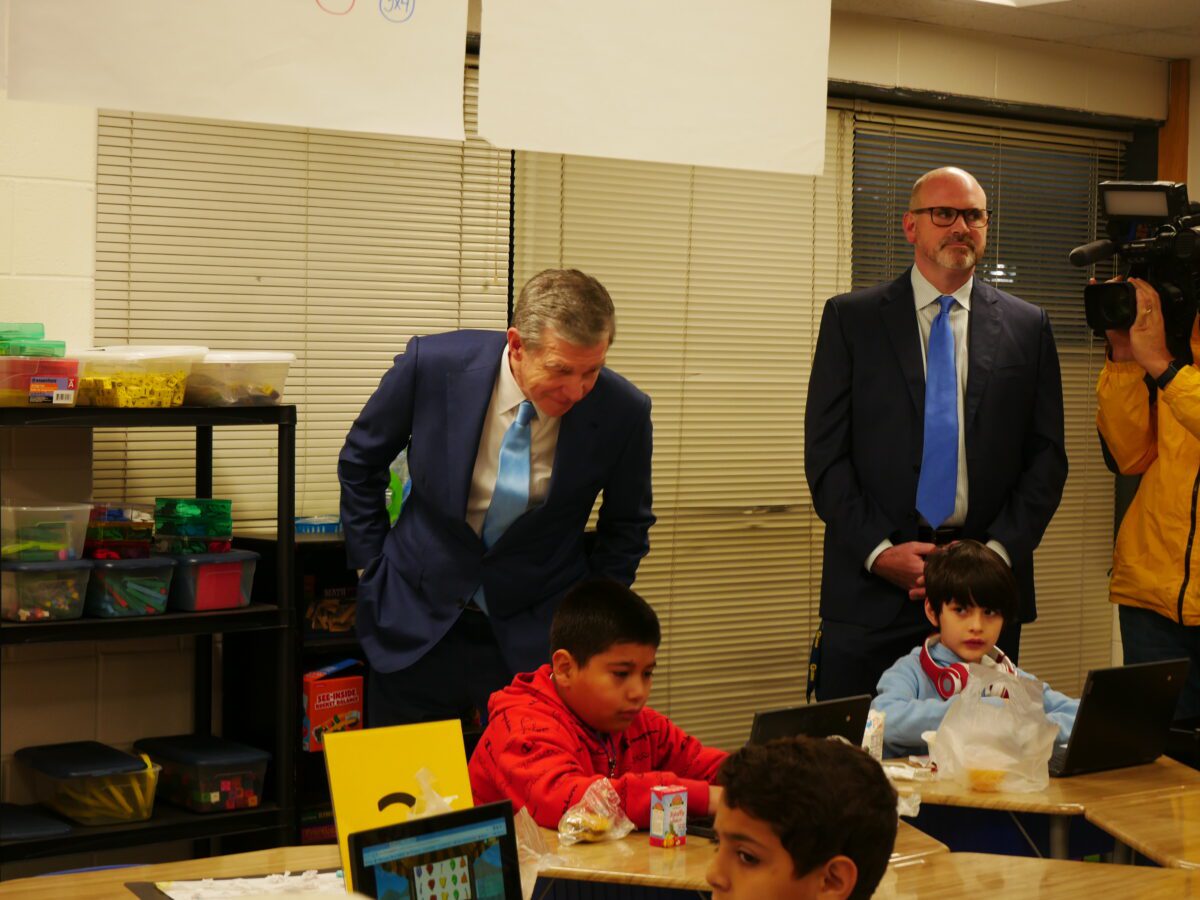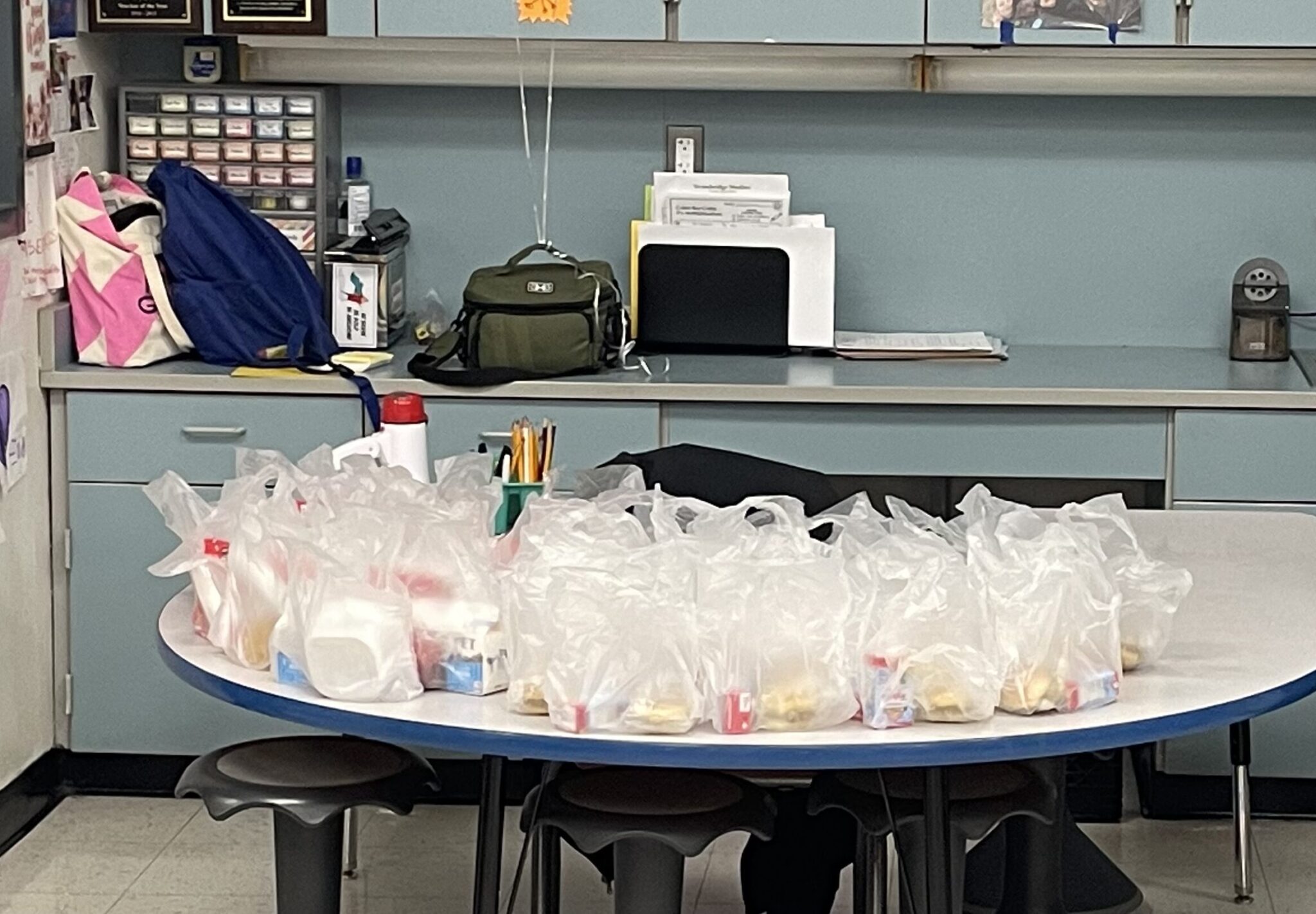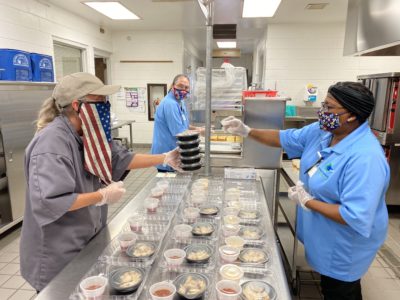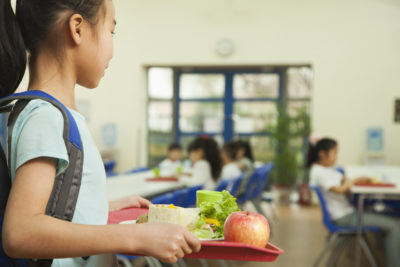
|
|
Gov. Roy Cooper visited Glenn Elementary School in Durham on Tuesday to announce that $1.4 million in federal funds will go to support North Carolina public schools in expanding student breakfast programs.
“You can’t teach a hungry child,” Cooper said. “If a child hasn’t eaten, then clearly that child is going to be more distracted, and it’s going to be more difficult to make sure that they learn.”
Innovative breakfast options, like the breakfast served in classrooms at Glenn Elementary, help improve student success in academics while lowering the need for discipline, said Jim Keaten, the executive director of child nutrition services at Durham Public Schools.
“I think it’s starting to show in the academics that the kids being able to eat and focus and spend more time—instructional time— is really making an impact. And they’re focusing on education as opposed to discipline,” Keaten said.
The funding will provide grants of up to $50,000 per school nutrition program to allow schools to better provide students innovative school breakfast options, such as breakfast in the classroom, grab-and-go breakfasts, or second chance breakfasts, when students have the option of eating breakfast during a break.
“Hopefully it can get more school systems and schools involved in this program because we know that it means a lot for them to do this,” Cooper said.
Cooper is partnering with the North Carolina Alliance for Health (NCAH) and the Carolina Hunger Initiative (CHI) for this effort.
The governor said the effort would particularly help schools with high numbers of low income students.
The innovative breakfast program at Glenn Elementary, which has been in place for about two years, allows all students — regardless of economic status — to arrive to class early for a free breakfast and receive bonus instructional time with teachers while they eat.
In the past two years, Glenn Elementary School’s performance grade has increased by 15 points, said Principal Matthew Hunt, and the extra time students can spend with their teachers has added about three additional weeks of instructional time for some students.
“Food is the most important school supply, and getting kids off to a good start early in the morning with a good breakfast is, I think, the right thing to do,” said Morgan Wittman Gramann, executive director of NCAH.
Tanitra Edwards, a third grade math and science teacher at Glenn Elementary, said she is a fan of the program as it allows her more time to connect with her students, especially those who might need extra help.
“If there’s a student that I know is needing a little more support or something from a previous day, I’m allowed to work with them (at) that time,” Edwards said. “Of course, if they were in the cafeteria, I wouldn’t have that time with them.”
Cooper participated and observed as students at Glenn Elementary School were served individual bags of breakfast food early in the morning. Students in Edwards’ class worked on an online math game while they ate.
“They just love coming in and having those options available,” Edwards said.

Keaten recalled the stigma he felt as a child eating free breakfast at school, when students who needed free meals were separated from others, letting everyone know who the “poor kid” was. Free universal breakfasts for all students cuts down on that stigma, he said.
“To be able to get all the kids to eat in the classroom with no stigma to me is just a tremendous gain,” Keaten said. “It’s like one of my life goals to take that stigma away from kids.”
The innovative breakfast program at Glenn Elementary emerged due to necessity during the pandemic as students had to eat in classrooms rather than in the cafeteria, Keaten said.
While eating in the classrooms, the school found students had more time to complete homework and receive help while school staff completed administrative tasks and morning announcements before class began, freeing up time during the school day, Keaten said.
Cooper said other ways to mitigate hunger among students include adequately funding public schools and teachers while employing more school social workers and counselors who can help support the “whole child” and their family.
“Our schools can help connect families to services and help children not only get better nutrition, but be safer and have healthier lives all together,” Cooper said.
Expanded breakfast programs will also benefit students who may have food available at home, but aren’t ready to eat first thing in the morning at home, Cooper said.
The $1.4 million in funding comes from the federal Emergency Assistance for Non-Public Schools funds that have gone to the Governor’s Emergency Education Relief fund.
Applications for the grants will open in the next few months. When approved, the school systems will receive the support for their breakfast programs. All funding must be spent by September 2024.
“We celebrate this amazing opportunity to create more access for breakfast for more kids through innovative breakfast programs,” said Lou Anne Crumpler, director of CHI.
In the wake of the pandemic, the U.S. Department of Agriculture provided all public school students across the nation with free breakfasts and lunches, though that opportunity ended at the start of the 2022-23 school year.
Cooper said on Tuesday that state is making efforts toward securing universal lunches for students, though the work is still in progress. The 2023-24 state budget included funding to eliminate student co-pays for reduced-price lunches, which means students qualifying for reduced-price lunches can now eat for free. The co-pay for reduced-price breakfast was eliminated in 2011.





